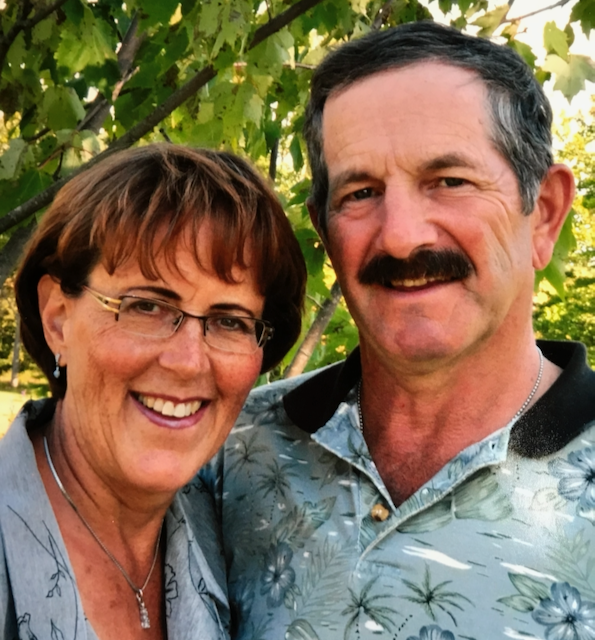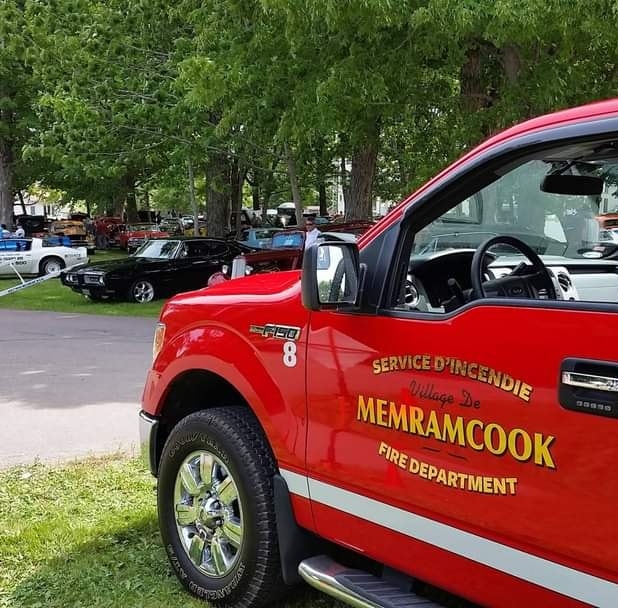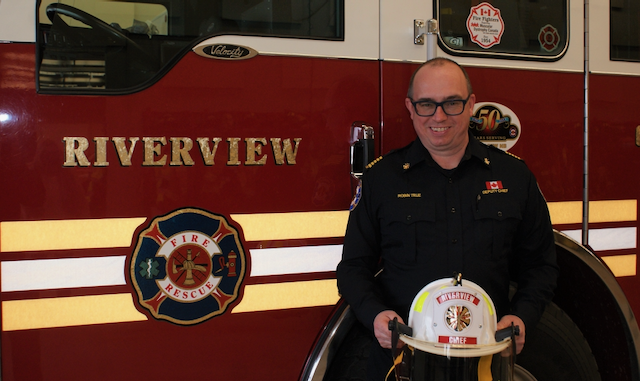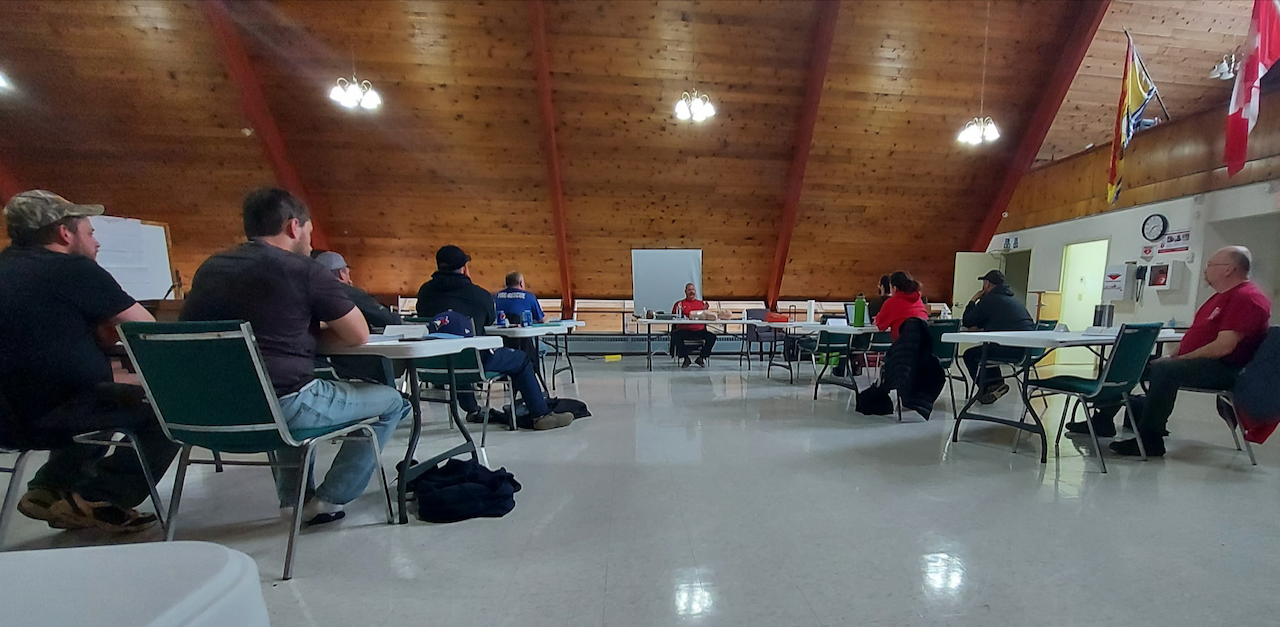Roselys Belliveau thinks very fondly of her local fire department, and with good reason. One July day in 2020 her son Jean Yves Belliveau was up early and preparing for a trip when he suddenly felt ill. Before too long, Belliveau had collapsed. His wife frantically called 911, and within minutes, help arrived. But not an ambulance. That would arrive later. The first people on the scene were from the Memramcook Fire Department, where firefighters are trained and equipped for medical first aid response. The firefighters used a defibrillator to help revive Belliveau, something they had to do three times, and well before the ambulance arrived on scene.
“If it wasn’t for the Memramcook firemen,” says Belliveau, her now 48 year old son Jean Yves “wouldn’t be here at all.”
But since a change to Ambulance NB’s protocol in January, it’s unclear whether the Memramcook Fire Department will be called to help people like Jean Yves Belliveau in the future.

Not all fire departments in New Brunswick are trained or equipped for medical first aid. Memramcook was one of the first in the province to take on the extra duty, with a pilot project in 1999. Dorchester has also been doing medical first response for decades, and the newly amalgamated Straight Shores department, with Port Elgin and Cape Tormentine stations, is also trained to first responder first aid level. The Sackville Fire Department does not take part.
But equipment and training are only useful if departments are called on where they are needed, and most departments rely on ANB’s dispatching system to do so. Depending on the medical emergency, ANB’s Medical Communication Management Centre would dispatch an ambulance and also send the call to a nearby fire department. But since January 9, ANB no longer routinely refers medical emergency calls to fire departments due to what they call an “upgrade” to their system.

Memramcook Fire Chief Gerald Boudreau says his department used to get anywhere from 10 to 20 medical calls per month. But that’s dropped off nearly completely, with the department receiving just one call each in January and February.
Over in nearby Riverview, Fire Chief Robin True noticed a one third drop in medical first aid calls coming in to his department in late January. When he called Ambulance New Brunswick to enquire about the drop, he discovered the policy change. Eventually, Medavie Health Services, the non-profit that runs Ambulance NB, sent letters to explain the change to fire chiefs in the province.
One such letter says Medavie has, “recently upgraded their Computer Aided Dispatch Software (CAD) to a state of the art system” and so “the platform used to be able to notify [fire] department[s] is no longer a reliable platform.”
The change in policy was a surprise for Phelma Cormier. In February, the 74-year-old fell outside on an icy ramp and broke her ankle. Her husband immediately called 911, but Cormier wound up waiting over an hour and a half on the ground, in the cold and rain, before help arrived. Cormier had expected her call would get dispatched to her local fire department, but due to Medavie’s protocol change, it was not. Cormier eventually called a relative who had a son in the local department, and so a team was eventually dispatched to help her. Within minutes of arriving they had Cormier’s foot stabilized, and her warming up inside a rescue vehicle to await an ambulance.
Cormier says at the very least there needs to be an awareness campaign about the Ambulance NB dispatching change. “We were stuck with no notification that we weren’t going to have any help coming,” says Cormier. If she had known, she says she would have simply called the department on her own, after calling 911.
“It seems such a waste of money,” says Cormier. “We know how much these [firefighters] have to go through to get training to become first responders, and the equipment that had been bought for them. To let it go to waste, it just does not seem right to me.”
CHMA reached out to the Department of Public Safety to find out if they were aware of the issue and had any plans to address it. A department spokesperson responded by email to say, “questions regarding ambulance dispatch should be directed to EM/ANB [Extra-Mural/Ambulance NB].”
Ambulance NB is run by the non profit corporation Medavie Health Services. Their spokesperson Christianna Williston writes:
“It is important to understand that ANB has never had a mandate to notify or dispatch fire departments. However, over the years, various fire departments had expressed that they would like to be notified of certain ambulance calls. As a result, ANB had developed its own system to notify fire departments of certain call types; however, it was determined [in] early January that this improvised solution was no longer sustainable. It is important to highlight that not all fire departments are interested in being notified of the same types of calls – for instance, some are only interested in ECHO level (our highest acuity calls), while others may be interested in a variety of different call levels.”
Williston also pointed out that it is still ANB policy to call on fire departments in a small number of cases, such as when there is a delayed response expected, when there is a high acuity or ECHO level call, and when ANB staff will need help with lift assists. That means it is technically possible for Ambulance NB to call on local fire departments, but the number of calls is being drastically reduced. In a follow up email, Williston said the issue is not one of resources, but reiterated that the dispatching was simply “no longer sustainable.”
Memramcook mayor Maxime Bourgeois says he doesn’t understand the lack of capacity. “I don’t see how they can’t get the capacity to make a single phone call to a fire department,” says Bourgeois. “I mean, it’s a question of life or death in some cases.”
“Medical first responders are very important piece of pre-hospital medical care in the province,” says Chief Robin True of the Riverview Fire Department. True says his department responds to calls like possible heart attacks, strokes, any loss of consciousness, shortness of breath, or any trauma. It’s common knowledge that in emergencies, minutes count, says True. “We can get there with the equipment and the trained personnel that can save a life, especially when there may be a delay in the ambulance’s arrival.”

Once True realized what was happening with dispatching calls, his department was able to bypass the issue by asking their main 911 dispatch centre, the Codiac Public Safety Answering Points (PSAP), to start sending all medical calls to them. That’s because Codiac PSAP also happens to handle the fire dispatch for Riverview. But that’s not the case elsewhere, where dispatch services are a step removed from the PSAP.
But the Riverview solution created new problems. “Now we’re responding to calls that we would not necessarily usually respond to,” says True. “We’re sending firefighters to calls that they probably don’t necessarily need to go to like a sprained ankle, or somebody who is just feeling ill. Normally, we would not go to those calls. But now we’re going to them, just to make sure that we don’t miss a call that we should be going to.”
Dorchester Fire Chief Greg Partridge says he’s hoping for a coordinated solution that can rectify the problem for all fire departments who have been providing medical first response. But he fears that in the meantime, there could be preventable deaths.
“Someone is going to die before they get this straightened out,” says Partridge. “Each department is kind of left out on their own to try and get back into business.”

“It could be an hour or more before we get an ambulance to Dorchester,” says Partridge. That’s one of the reasons the department bothers to undergo medical first responder training, and acquire equipment such as defibrillators. “It’s a serious, serious thing.” Partridge says that he’s hoping that between the hospitals and the New Brunswick Association of Fire Chiefs, some sort of solution can be found.
“It feels like nobody really wants to be responsible for it,” says Memramcook-Tantramar MLA Megan Mitton, who says she’s heard from constituents and fire departments with concerns. “There needs to be [a] more universal dispatching system,” says Mitton. “Basically, we don’t have a province wide one, we have several around the province.”
Roselys Belliveau wants to see the problem rectified, and in the meantime, more awareness created in rural areas that their local fire departments are not being called automatically. She says without trained local fire departments responding to provide immediate first aid, people will die unnecessarily. She’s certain that would have been the case for her son.
“Our firefighters here in Memramcook, they want to go,” says Belliveau. “They want to help. They can help. So why not call them?”
